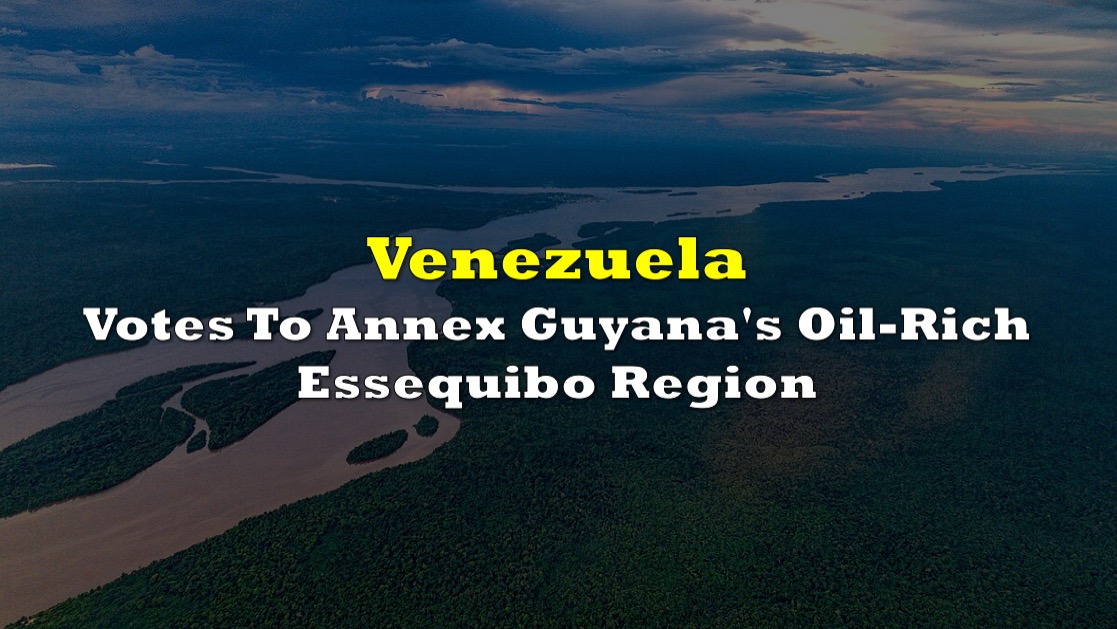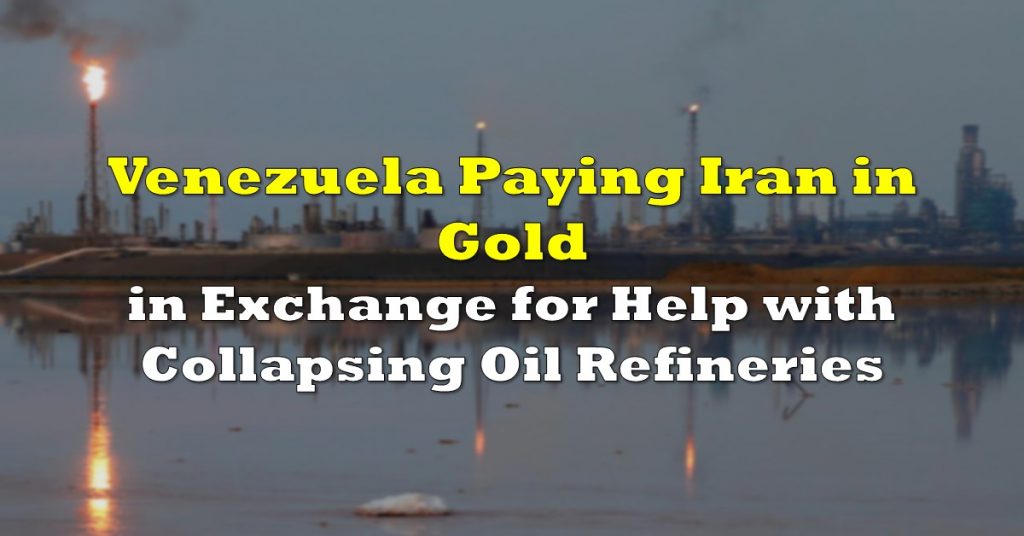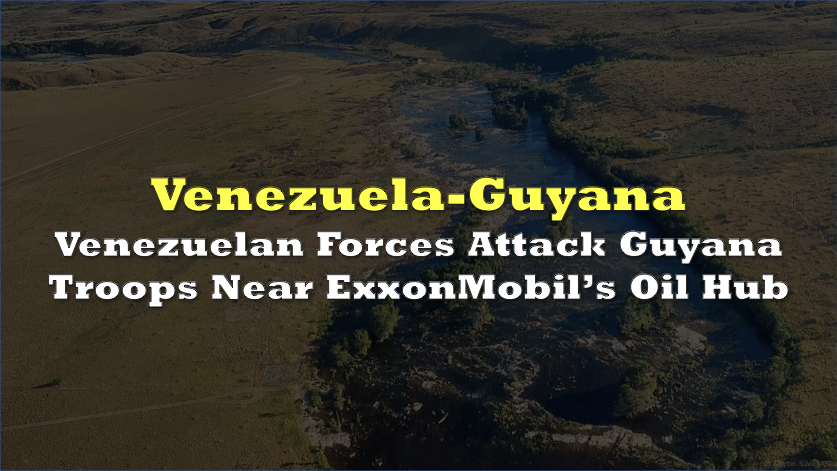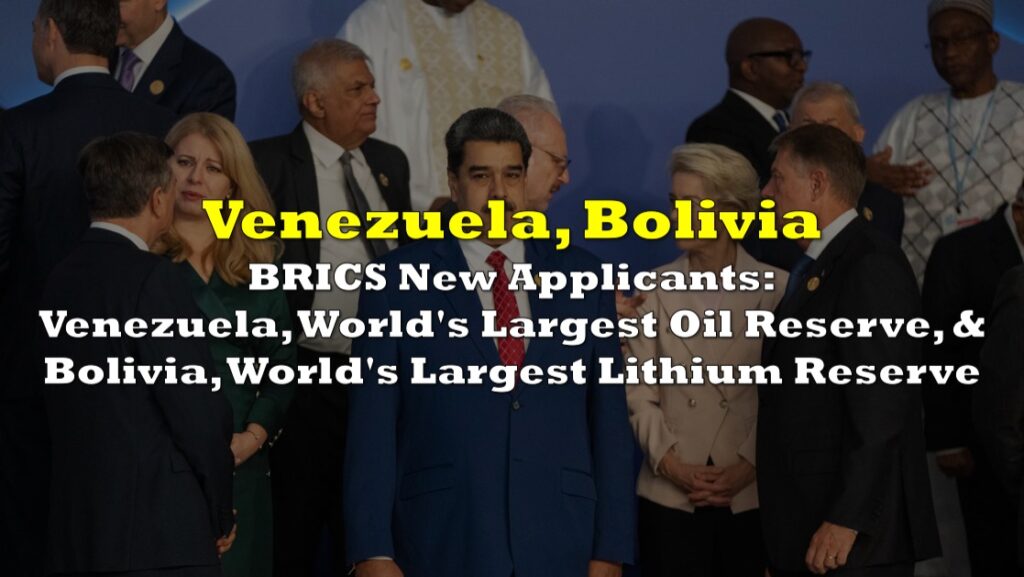Venezuelans voted overwhelmingly on Sunday in favor of claiming sovereignty over the oil-rich Essequibo region in neighboring Guyana, escalating the long-standing territorial dispute between the two nations. The controversial referendum, largely seen as symbolic, garnered support from more than 95% of voters, according to preliminary results announced by the Venezuelan National Electoral Council.
BREAKING: Venezuela votes to 'incorporate' disputed territory in neighboring Guyana, according to official results
— BNO News (@BNONews) December 4, 2023
The disputed Essequibo region, covering about two-thirds of Guyana’s national territory and roughly the size of Florida, has been a focal point of tension fueled by the recent discovery of extensive offshore energy resources. The referendum posed five questions to voters, including whether they supported the creation of a Venezuelan state in the Essequibo region and the rejection of the jurisdiction of the International Court of Justice (ICJ) in settling the disagreement.
Despite the resounding “yes” vote, the practical implications of the referendum remain uncertain, as Venezuela’s government has not outlined specific steps to enforce its claim. The International Court of Justice, based in The Hague, had issued a ruling prior to the vote, urging Venezuela to refrain from actions altering the current territorial situation. However, Venezuela, disputing the court’s jurisdiction, proceeded with the referendum.
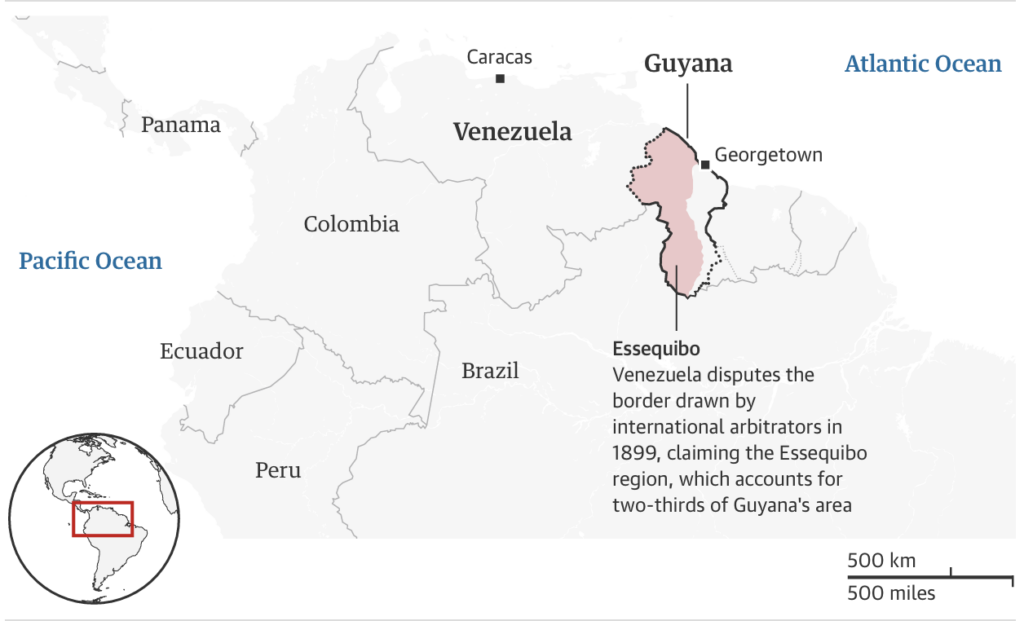
Guyana has strongly opposed the move, labeling it a step toward annexation and an “existential threat.” President Irfaan Ali, in a show of defiance, hoisted the Guyanese flag on a mountain overlooking the border with Venezuela last week. The ICJ plans to conduct a trial on the issue in the spring, following years of review and failed negotiations, further complicating the already strained relations between the two nations.
Analysts suggest that the referendum’s outcome was widely anticipated within Venezuela, but the practical implications may be minimal. The escalating rhetoric has led to troop movements in the region, drawing comparisons to geopolitical conflicts such as the Russian invasion of Ukraine. Residents in the predominantly indigenous Essequibo region are reportedly on edge due to the heightened tensions.
venezuela threatening military action against guyana, with maduro holding a referendum today that will pass easily.
— ian bremmer (@ianbremmer) December 3, 2023
mostly bluster for a deeply unpopular dictator.
the direct border is impenetrable—militarily maduro would have to go through brazil.
and china, venezuela’s… pic.twitter.com/idxEpueA1E
Venezuelan President Nicolas Maduro hailed the referendum as a “total success” and emphasized the high level of participation, despite reports of low turnout in some areas. The referendum, seen by some as a political maneuver by Maduro amidst a challenging re-election campaign, could provide him with a patriotic rallying point amid growing opposition momentum.
The international community closely watches the developments, with neighboring Brazil intensifying defensive actions along its northern border in response to the territorial dispute. As the situation unfolds, concerns persist about the potential for further military posturing and the impact on regional stability.
The referendum’s outcome may have stirred nationalist sentiments within Venezuela, but the broader implications for the territorial dispute and geopolitical stability in the region remain uncertain, pending the ICJ’s trial in the coming months.
This comes after the Maduro government refused to accept the results of an opposition primary election to select a presidential candidate. This primary election, which took place earlier this month, was won by María Corina Machado, 56, who is currently barred from holding office for 15 years.
The rejection essentially violates the deal Caracas made with the United States in which the latter will relax oil and gas sanctions against Venezuela after the government agreed with the opposition to conduct free and fair elections.
Information for this briefing was found via CNN, The Guardian, Reuters, and the sources mentioned. The author has no securities or affiliations related to this organization. Not a recommendation to buy or sell. Always do additional research and consult a professional before purchasing a security. The author holds no licenses.

